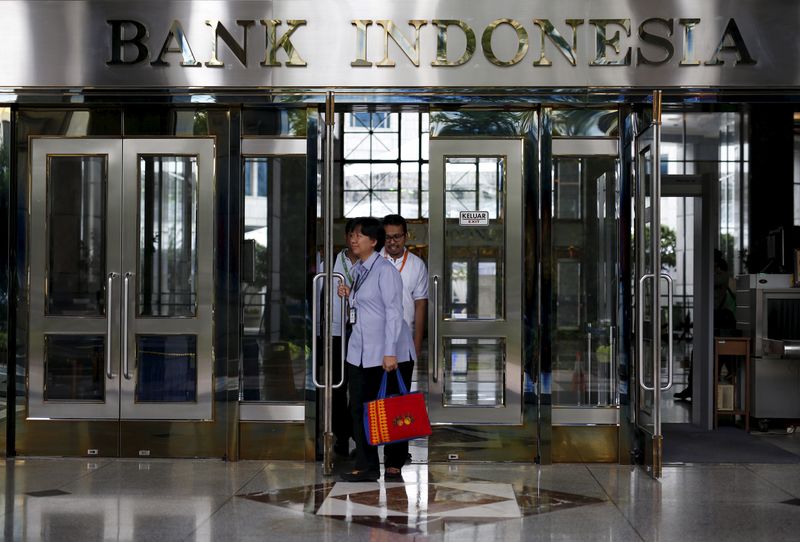Indonesia central bank holds rates steady as it focuses on FX stability
2024.11.20 03:26
JAKARTA (Reuters) -Indonesia’s central bank left interest rates unchanged on Wednesday, as expected, saying changed global dynamics after the U.S. election meant it had to focus on stabilising the currency, and analysts saw little chance of a near-term rate cut.
Bank Indonesia (BI) kept the benchmark rate steady at 6.00%, as predicted by 25 of 34 analysts polled by Reuters.
The central bank also left the overnight deposit facility and lending facility rates at 5.25% and 6.75%, respectively.
“The focus of monetary policy is directed at strengthening the stability of the rupiah exchange rate from the impact of heightened geopolitical and global economic uncertainty with the political developments in the United States,” Governor Perry Warjiyo said in a statement on the policy decision.
BI had cut rates by 25 bps in September, just ahead of the start of the U.S. Federal Reserve’s rate-cutting cycle, and authorities have said they would continue to assess the capacity for further rate cuts once global market volatility eased.
The rupiah has been weakening since early October, though so far remains above lows hit earlier in 2024.
“As expected, BI’s top priority was to maintain the rupiah,” SMBC economist Ryota Abe said.
“We think it is hard for BI to consider a rate cut at the December meeting. The prolonged high interest rates will likely weigh on the economy as its momentum is already slowing.”
Announcing the policy decision, Warjiyo said global dynamics had changed in the month since BI’s last policy review, with economic, geopolitical and trade fragmentation risks all rising.
He said that under President-elect Donald Trump, U.S. policy could be more inward looking, and an expansive fiscal policy could limit the Federal Reserve’s easing cycle and affect global inflation.
Warjiyo said the rupiah’s recent weakness was due to broad U.S. dollar strength and capital flight to U.S. dollar assets since the U.S. election, but said it was manageable and all monetary instruments would be used to support the currency’s stability.
DBS Bank senior economist Radhika Rao said BI had clearly flagged that while the inflation outlook left room for a rate cut, the global uncertainties meant it had to focus on financial stability.
“They will continue to deploy tools available under the triple intervention strategy to prevent excessive weakness in the rupiah, while gearing up the interest rate policy to keep FX stability. We see receding likelihood of further cuts in the rest of this quarter,” she said.

Annual growth in Southeast Asia’s largest economy was 4.95% in the third quarter. While the pace remains solid, it was far slower than the 8% rate that new President Prabowo Subianto has said he wants to achieve.
Inflation has stayed within BI’s target since the middle of last year, and Warjiyo said it was seen staying within the 1.5% to 3.5% target range. Annual headline inflation in October was 1.71%.








